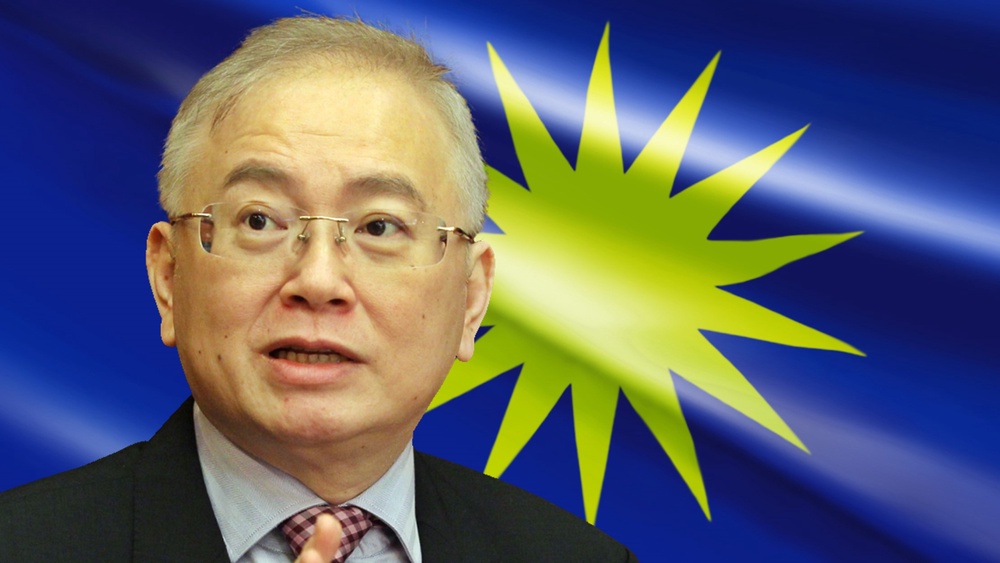
MCA’s Criticism Is Landing — And It Deserves Recognition
8 Jul 2025 • 3:30 PM MYT

TheRealNehruism
Writer. Seeker. Teacher

Image credit: MCA official website
This past Sunday evening, over tea with two retired lecturers and a farmer — two of them above 70, and one in his 40s; two Indian, one Chinese — we found ourselves speaking, as many Malaysians do these days, about how deeply disappointing the current unity government under Prime Minister Anwar Ibrahim has turned out to be. But what caught my attention wasn’t just the growing cynicism toward the government — it was a particular observation that struck a chord deep within me: someone mentioned how effective MCA, and especially its president Wee Ka Siong, has been as a critic of this administration.
It wasn’t a point I brought up, but when I heard it, it registered with surprising clarity. Because I, too, have felt the same — quietly, over the months. There is something increasingly undeniable about how Wee Ka Siong and MCA are landing blows that the government simply cannot, or refuses to, properly respond to. It's debatable whether MCA is the biggest critic of the unity government — after all, PAS and Bersatu are certainly more aggressive in volume — but what seems increasingly clear is that MCA is becoming one of its most effective critics.
The key lies in their precision. Unlike many other critics who lash out in every direction hoping something sticks, MCA under Wee Ka Siong picks its battles carefully, arms itself with facts, and strikes surgically. When their criticism lands, it doesn’t just ruffle feathers — it leaves a mark. The government, in turn, often appears to respond with hollow justifications or obfuscations — as if the primary concern is not to address the issue, but simply to appear as if it has been addressed. The result? An impression that the unity government is dodging accountability rather than confronting it.
Take the EPF "buy high, sell low" fiasco that MCA broke — involving what appears to be a colossal RM500 million loss through a questionable deal under Malaysia Airports Holdings Berhad. The government’s convoluted explanations never quite answered the fundamental question: how was such a decision allowed to happen under their watch, and why has no one been held responsible? For most observers, the question still hangs in the air — and the damage to public trust remains.
Similarly, MCA’s criticism of Nga Kor Ming over the MyKiosk initiative and the so-called “BMW-class” smart toilets has been incredibly effective. Rather than refute the issues head-on with transparency, Nga and the DAP have resorted to dismissing criticism as "causing unnecessary public alarm and misusing network facilities" and involving the MCMC to threaten critics. But this approach has backfired — instead of neutralizing the controversy, it has only deepened the public perception that there is something to hide. That perception matters more than anything else in politics, and it is telling that Nga has since been pushing to ensure that the MyKiosk project shows results, even issuing ultimatums to traders to start operations within two weeks. That’s what effective criticism does: it doesn’t just make noise — it makes the target move.
The recent UPU vs SATU controversy, raised by Wee Ka Siong, which centers on concerns that the newly introduced SATU system—which allows public universities to directly admit students outside the centralized UPU process—which undermines transparency, fairness, and meritocracy in university admission - is also an issue that the public is certainly appreciative of MCA and Wee of raising. It is indeed disconcerting that in the Reformasi era government, the government is still consenting to a system like SATU, that dents the concept of equal opportunity for ,by allowing direct intakes through SATU, which is weakening the merit-based principles that UPU was designed to uphold.
This is what sets MCA apart. Many of the government’s other critics end up looking bitter, petty, or out of touch — harming their own credibility more than the government’s. But MCA’s approach, especially under Wee’s leadership, tends to flip that script: it’s often the government that ends up looking evasive, defensive, and ultimately culpable.
It remains to be seen whether MCA’s criticism alone will be enough to tip the electoral scales against the unity government. For now, MCA is still a party recovering from a long period of irrelevance and association with the old Barisan Nasional era. But in this role — as an effective, focused, and change-inducing critic — MCA is looking sharper and more competent than it has in years.
For a long time, the party seemed unsure of its role in post-GE14 Malaysian politics. It drifted, reduced to a whisper amid louder opposition voices. Today, however, we are beginning to see something else emerge: a party that has understood the power of disciplined, intelligent critique. And while there's still a long road ahead, it would be unfair not to acknowledge this progress.
So yes, let it be said clearly: good job, MCA. You still have a distance to go, but at the current pace, you’re doing well. Your transformation is showing. Your criticism is not just being heard — it is being respected, even by those who may not traditionally support you. Keep doing what you're doing, and keep getting better at it.
Jia you.
***
kt comments:
It's time to forgive, and re-embrace MCA.
BTW Nehru matey, the Hongkie catchphrase 'jia you' is not very popular with Malaysian Chinese as it was seen as a balls-carrying exclamation by pro-Western S-Whole rebs (traitors) in HK, wakakaka.
No comments:
Post a Comment